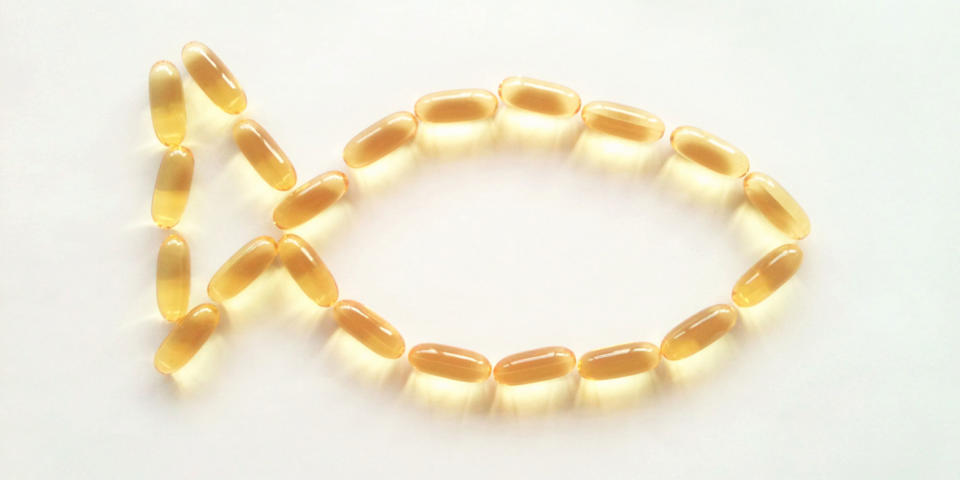Should you get your omega-3 levels checked?

Omega-3 fatty acids, which are found in oily fish, are essential for health. Many studies have even linked omega-3s with healthy brain development and a reduced risk of heart disease.
But most of us aren't getting enough. A recent study suggested that the majority of women are deficient, and are likely to be suffering from symptoms of a mild omega-3 deficiency, which include poor sleep and dry skin.
I wanted to see how my omega-3 levels measured up, so tried an at-home test to check my levels.
The omega-3 index
But first, let's look at some omega-3 basics.
There are two actives forms of omega-3: EPA and DHA. Your omega-3 index measures the levels of these fatty acids - and can be determined from a blood sample. A level between 8% and 11% is optimal.
The average omega-3 index in the United States in believed to be between 4-5%. While Japan, where oily fish is prioritised in the diet (and where heart disease is less common), the average omega-3 index is closer to 10%.
Omega-3 to omega-6 balance
But your omega-3 index isn't the only important measurement.
There are two main types of polyunsaturated fats that are used by the body: omega-3 and omega-6. Omega-6 fats are mostly found in vegetable oils.
Most people easily get enough omega-6 from their diet (particularly a Western one), but many experts believe the ratio of omega-6 to omega-3 is also very important to our health.
The optimum balance should be between 5:1 to 2:1. But with a Western diet, most of us have a ratio that's more like 15:1.

The test
I tried my omega-3 testing kit (Omega 3 Testing from WHC £54.99) one morning as soon as I'd woken up.
It involves a simple finger prick, then placing a drop of blood on some filter paper and filling out your personal details. Then, you simply pop it in the post and send it off to the testing facility in Belgium. Results are emailed to you within a few weeks.
Nutritionist Kim Pearson couldn't comment on the accuracy of the particular kit I tried, but believes that testing your omega-3 levels is a good idea if you're concerned you might be deficient.
"Many of us are deficient and assessing your levels allows you to supplement effectively in order to achieve an optimal level. Omega-3 fats are commonly lacking in our diet and yet are important for many aspects of health."
My results
My results came back in three weeks and my omega-3 index was found to be 5%, which is below the target range of 8-11%.
My omega-6: omega-3 ratio was 6.8:1, which again is below the ideal.

I spoke to omega-3 expert Jo Wyckmans, Founder of WHC who make the test kit that I tried.
He told me not to be too disheartened. Actually, my results were generally quite good.
"Your intake of omega-6, omega-9 and saturated fats is good, suggesting your diet is high in foods with these key ingredients for your health. But I can see your omegas-3 levels are fairly low and don't fall between the recommended ranges of 8-11%. This is not altogether surprising as around 97% of women are deficient in omega-3."
How to boost your omega-3
But now I know my levels aren't perfect, there are a few things I can do to improve them.
Pearson says: "The best dietary source of omega 3 is oily fish such as anchovies, wild salmon, mackerel and sardines. A small number of vegan foods such as flax seeds and walnuts contain omega-3 but they are not present in the active forms of EPA and DHA. It is very difficult to get optimal quantities with food alone. Also, given the levels of harmful contaminants (mercury, DCBs and dioxins) in the fish we eat today, taking a purified fish oil is a way of consuming Omega 3 without consuming high amounts of contaminants. "
What to look for in a supplement
Fish oil supplements typically provide a total daily dose of 500 mg to 1 g of omega-3. Pearson believes most people can benefit from supplementing omega-3 provided it doesn't interact with any medication they're already taking. But it's important to take a good quality omega-3 supplement.
"The best way to know that you're taking a high quality fish oil supplement is to check the International Fish Oil Standards (IFOS) website. A five star rating ensures that the fish oil contains a high concentration of omega 3 fats and the absolute lowest levels of oxidation and harmful contaminants."
You Might Also Like

